On August 4th an explosion shook the city of Beirut, leaving 6,000 people wounded and 180 people killed (OCHA). At least 300,000 people lost their home and 150,000 need humanitarian assistance.
Since the first day after the explosion in Beirut, ACTED Lebanon rushed to identify and assess the locations and families most affected after the explosion and plan a rapid response.
Geitawi, Karantina, Bourj Hammoud, Nabaa and Karm el Zeytoun as well as Gemmayze, Basta El Tahta, Mdawar and Mar Mkhayel are the areas most affected by the explosion.
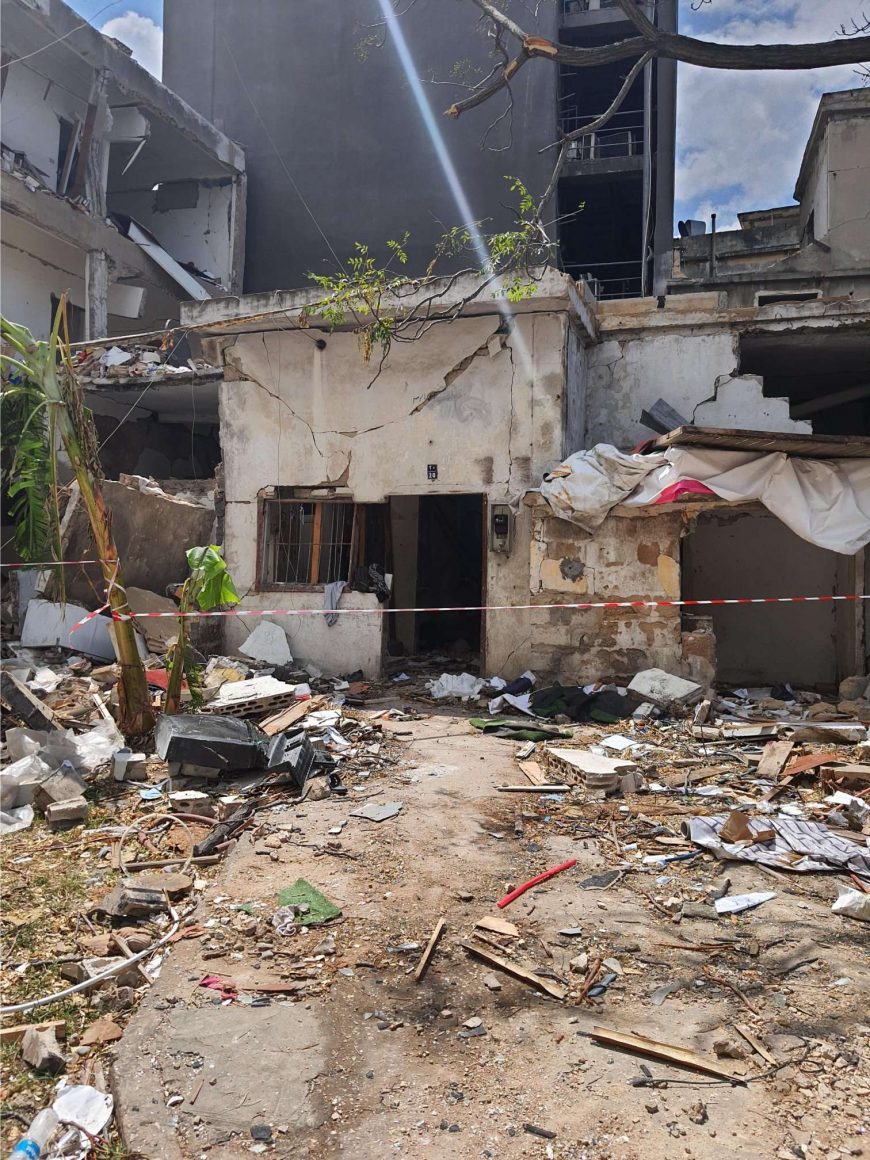
The area of Karantina was one of the most heavily hit by the explosion. 80% of the houses/dwellings are destroyed or partially destroyed.
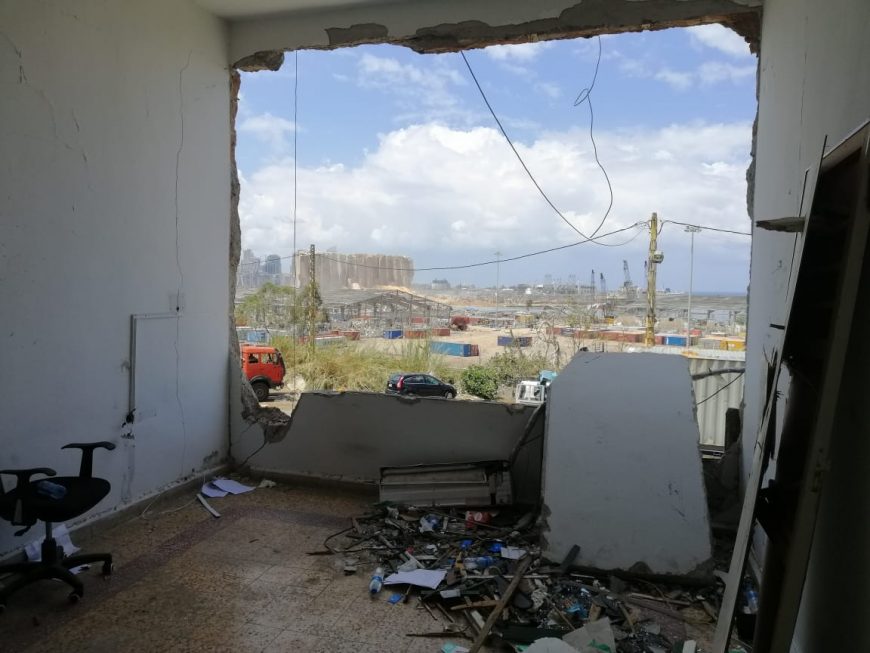
View towards the epicenter of the explosion in Beirut, from a house located in Karantina.
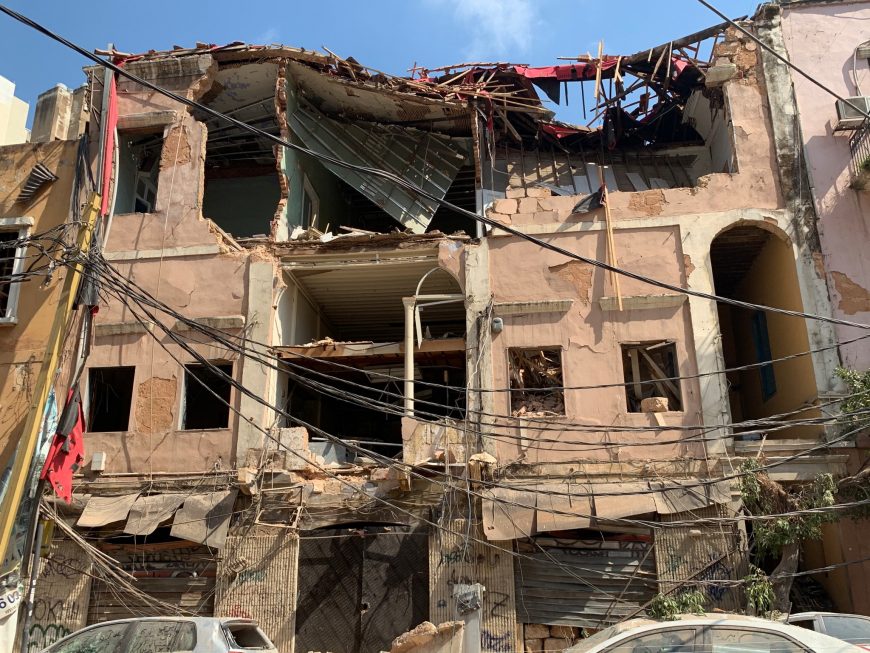
Gemmayze, a neighborhood of historic homes, restaurants and livelihoods, was severely impacted by the blast, and assessed as part of ACTED’s rapid assessment
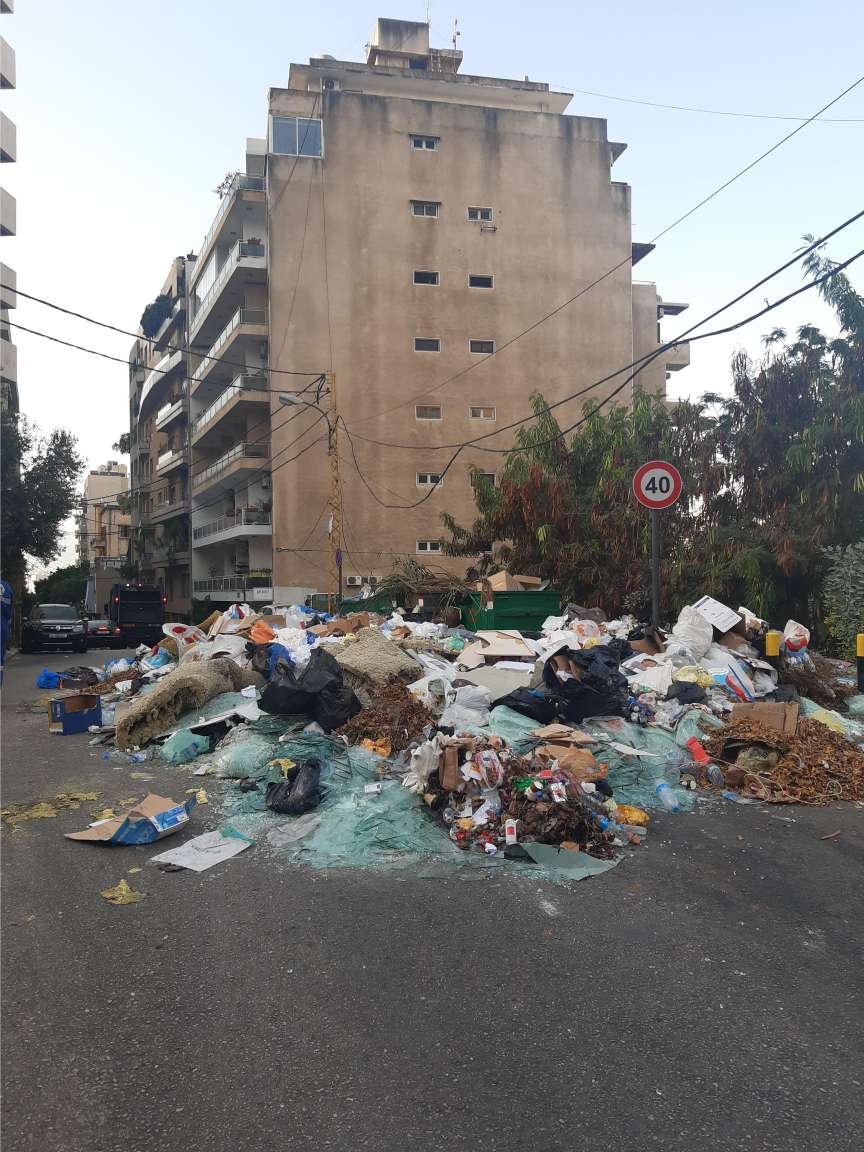
With so much debris and rubble blocking roads across the city following the blast, one of ACTED’s first responses was to clear this debris to open roads again.
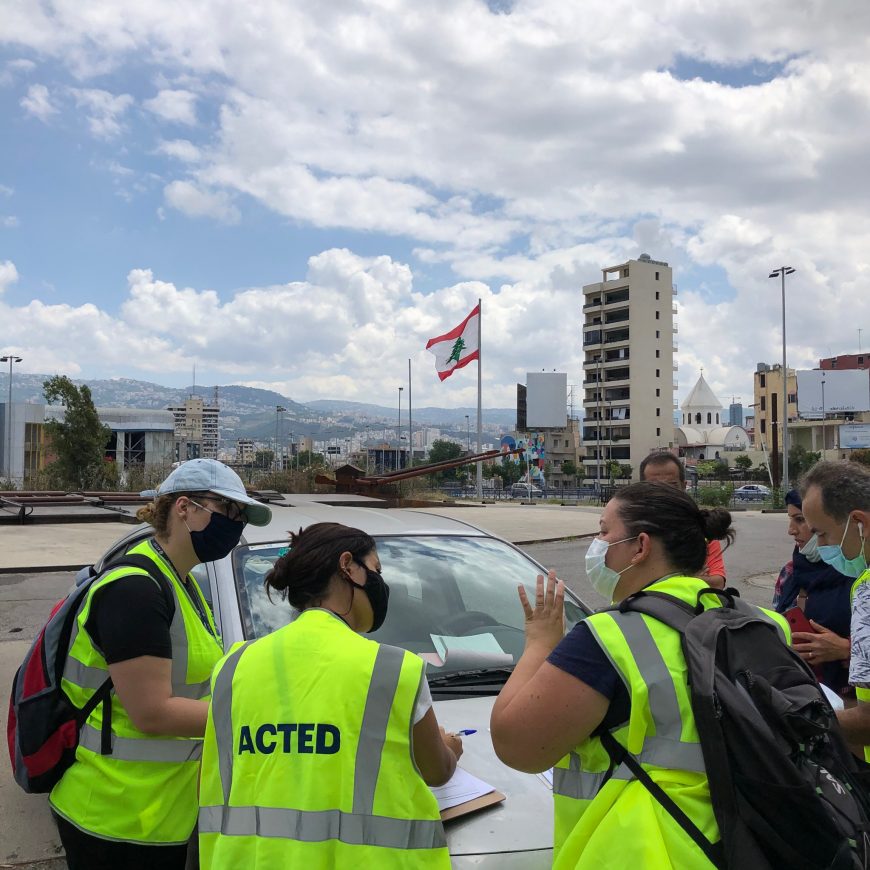
ACTED’s team on the field planning the delivery of baby and dignity kits in the neighborhood of Karantina.
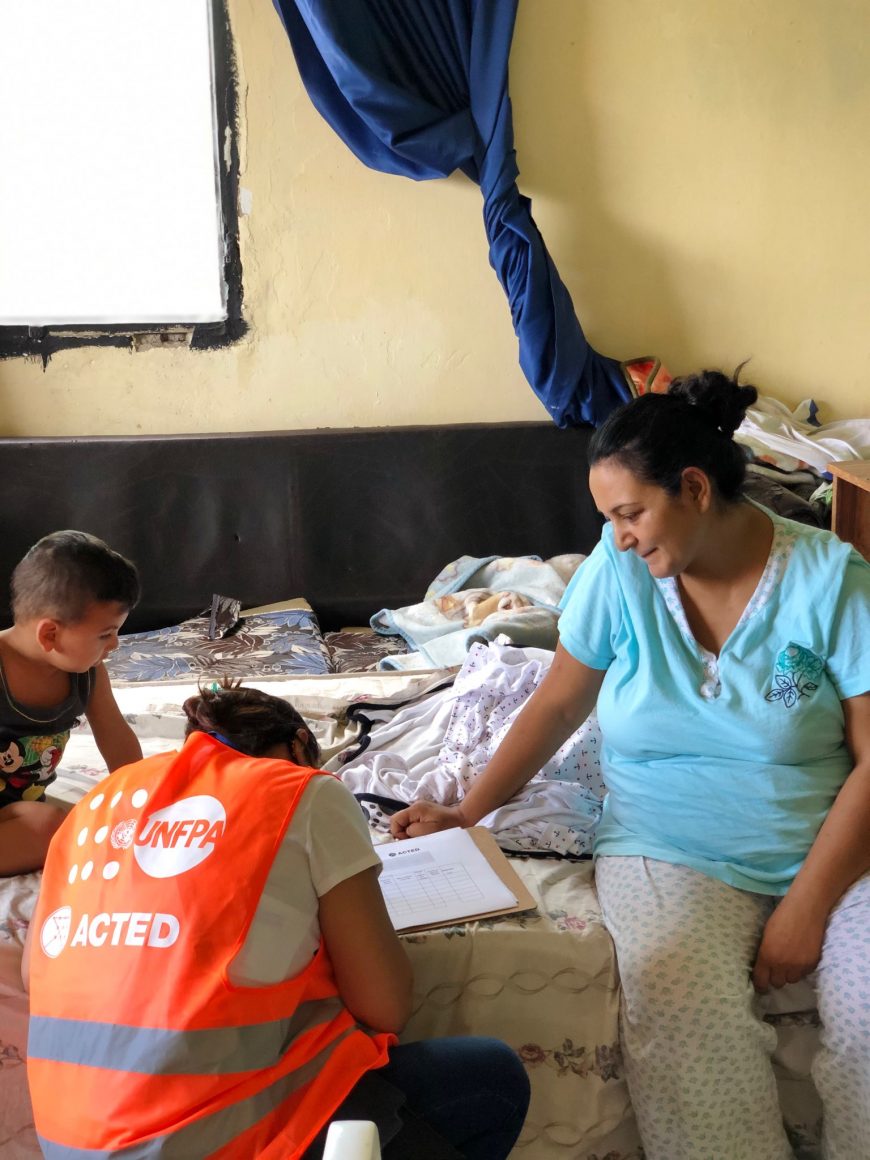
Khadija gave birth the day before the blast, and her house was heavily affected due to the explosion. ACTED visited her at her house and gave her dignity and baby kits for her and her five children.
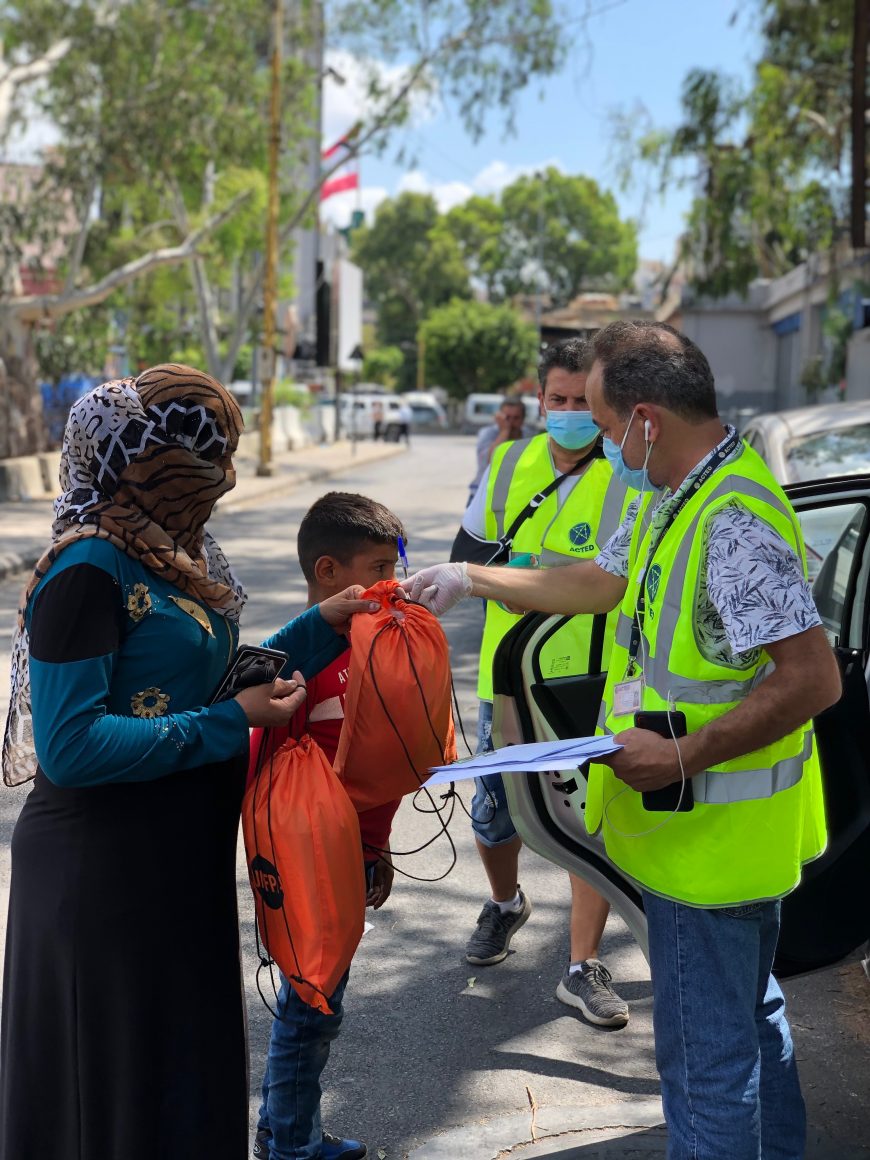
To date, ACTED has distributed over 625 dignity kits in coordination with UNFPA, and 53 baby kits with thanks to UNICEF, to the most vulnerable families after the explosion.
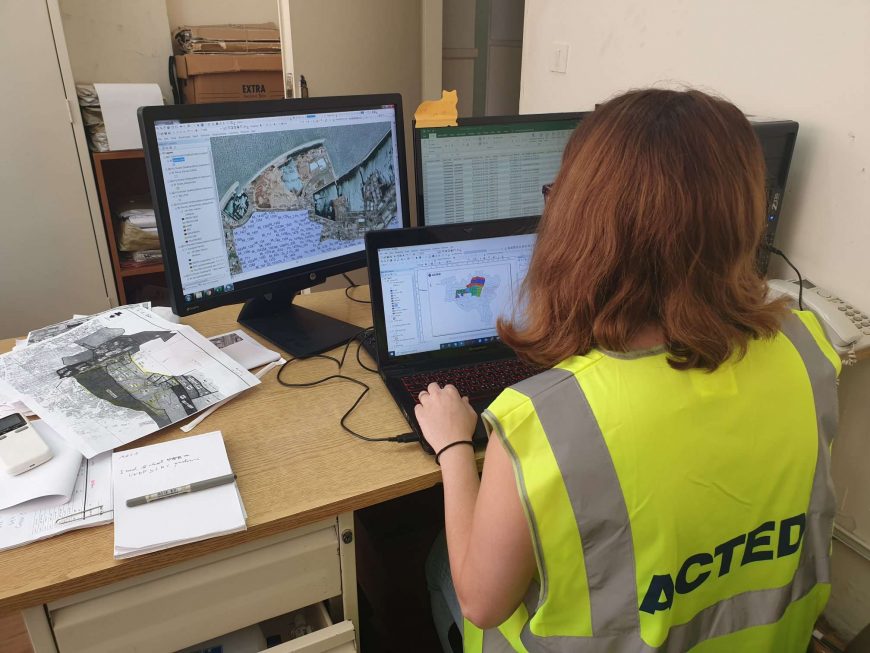
ACTED supported Beirut Municipality and UN-Habitat with information management. This allows more efficient and accurate assessments of damaged, in response to the needs of families affected.
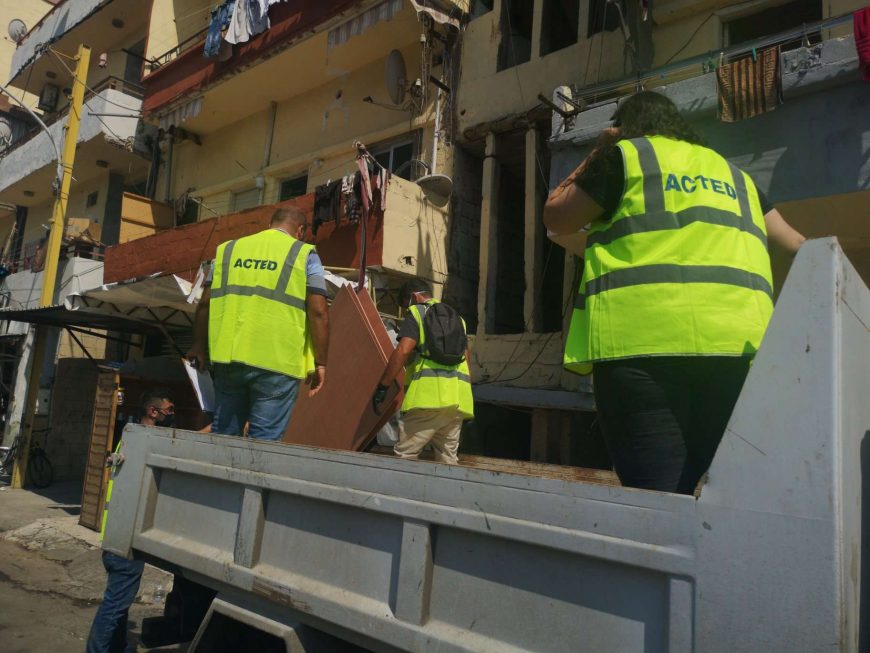
To combat the sheer size of rubble generated from the explosion, ACTED secured two trucks (four ton capacity) to work for seven days, removing 22 loads per day, for a total of 1,232 tons of rubble removed from the affected areas.
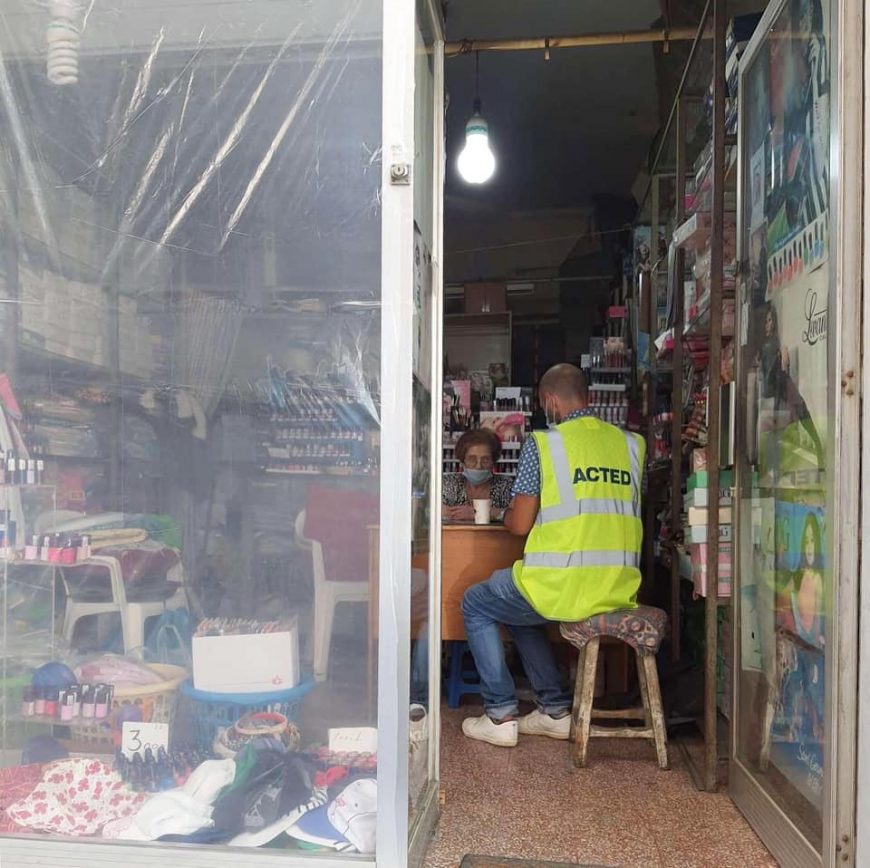
In collaboration with the Lebanese Red Cross, ACTED has led over 200 household level multi sector needs assessments, and in coordination with Livelihood sector partners, over 190 MSME needs assessments.
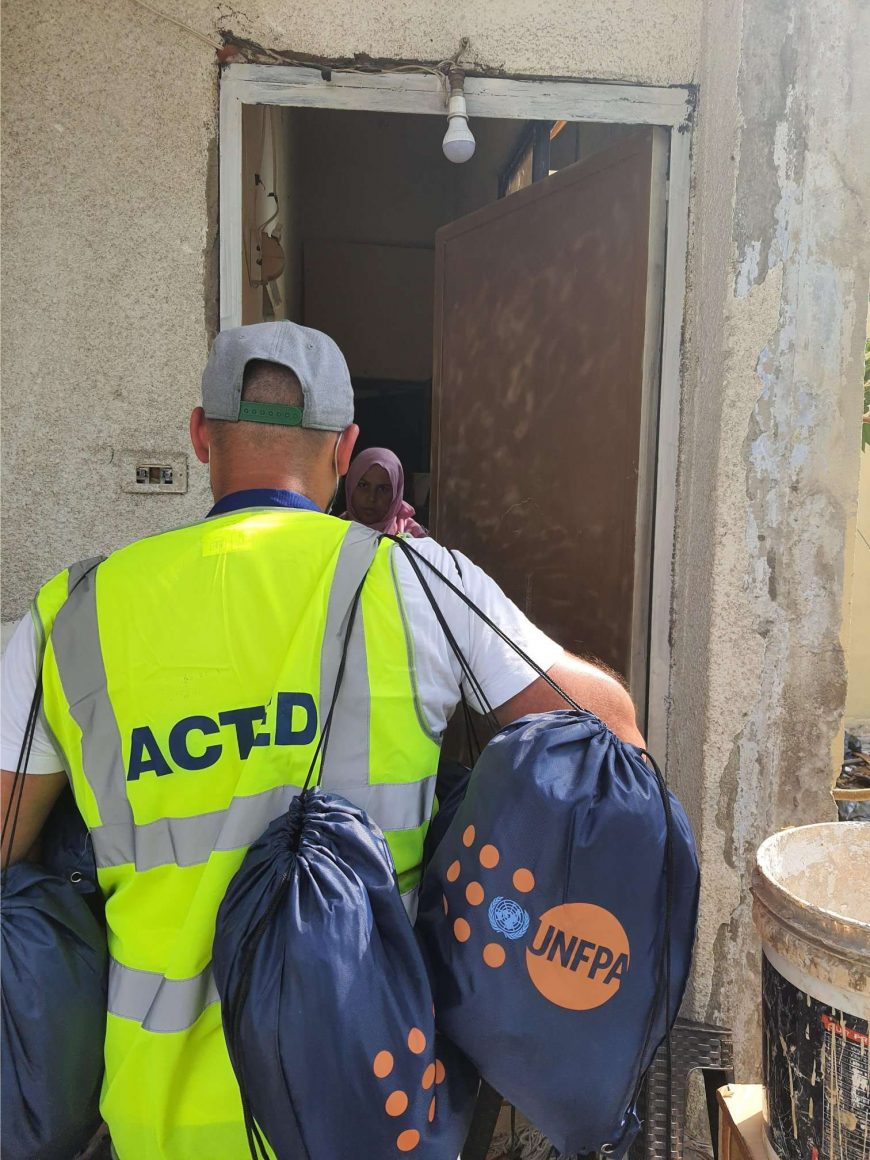
Help us to sustain our actions and expand the response to include financial and psychosocial aid to affected families.